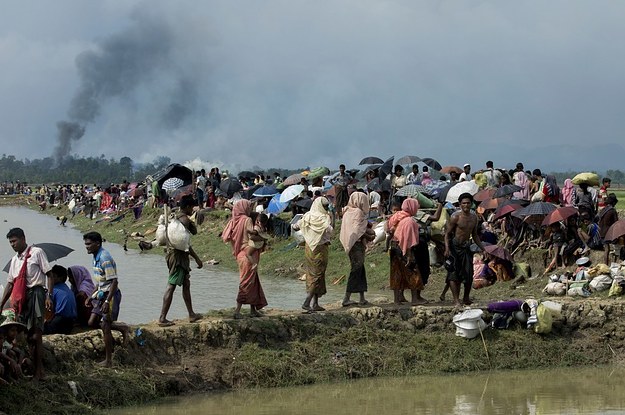In 1982, a new citizenship law was passed, which effectively rendered the Rohingya stateless. Under the law, Rohingya were again not recognised as one of the country's 135 ethnic groups. The law established three levels of citizenship. In order to obtain the most basic level (naturalised citizenship), there must be proof that the person's family lived in Myanmar prior to 1948, as well as fluency in one of the national languages. Many Rohingya lack such paperwork because it was either unavailable or denied to them.
As a result of the law, their rights to study, work, travel, marry, practice their religion and access health services have been and continue to be restricted. The Rohingya cannot vote and even if they jump through the citizenship test hoops, they have to identify as "naturalised" as opposed to Rohingya, and limits are placed on them entering certain professions like medicine, law or running for office.
Since the 1970s, a number of crackdowns on the Rohingya in Rakhine State have forced hundreds of thousands to flee to neighbouring Bangladesh, as well as Malaysia, Thailand and other Southeast Asian countries. During such crackdowns, refugees have often reported rape, torture, arson and murder by Myanmar security forces.

Smoke billows above what is believed to be a burning village in Myanmar's Rakhine state.
K.m. Asad / AFP / Getty ImagesLinkback:
https://tubagbohol.mikeligalig.com/index.php?topic=87560.0